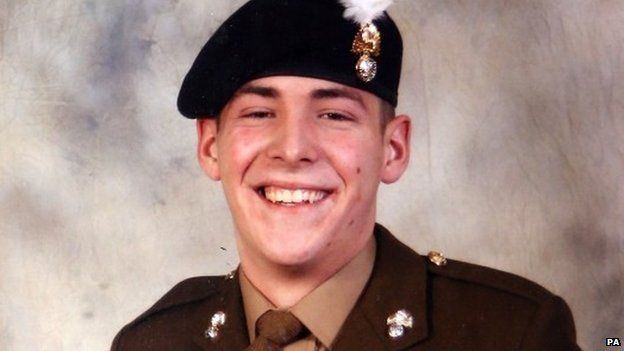Police's '24-hour window' to halt cyber-hate after terrorist event
- Published

Intervention by police within the first 24 hours of a terrorist event could be key to halting the spread of cyber-hate, a new study has found.
Cardiff University researchers found online hate in the aftermath of the murder of Lee Rigby peaked in the first 24 hours then declined sharply.
They found tweets from police and media were about five times more likely to be retweeted compared with tweets from other users following the attack.
The fusilier was killed on 22 May 2013.
The research is being published in the British Journal of Criminology on the second anniversary of his murder near Woolwich Barracks in London.
Michael Adebolajo and Michael Adebowale drove into the 25-year-old before hacking him to death.
During the study, social and computer scientists at the university focused on the production and spread of racial and religious cyberhate and the Twitter battle between police and far-right political groups in the first 36 hours following the attack.
Their findings suggest the dominance of traditional media and police information flows in social media are likely effective channels for the countering of rumour, speculation and hate.
Dr Matthew Williams said: "We concluded that cyber-hate has a 'half-life' following crime events of national interest.
"The sharp de-escalation of hate can be explained by post-event media and police Twitter messages that have a defusing effect and counter-speech from everyday Twitter users that challenge abusers."
Dr Pete Burnap said: "The ability to observe a large portion of the population in near real-time via social media networks provides those responsible for ensuring the safety of the public a new window onto mass social reaction."
The College of Policing is currently putting 6,000 officers through their Mainstreaming Cybercrime training course, which covers cyber-hate and harassment online.
- Published26 November 2014
- Published25 November 2014
- Published25 November 2014
- Published25 November 2014
- Published25 November 2014
- Published25 November 2014
- Published25 November 2014
- Published26 February 2014
- Published26 February 2014
- Published4 November 2014